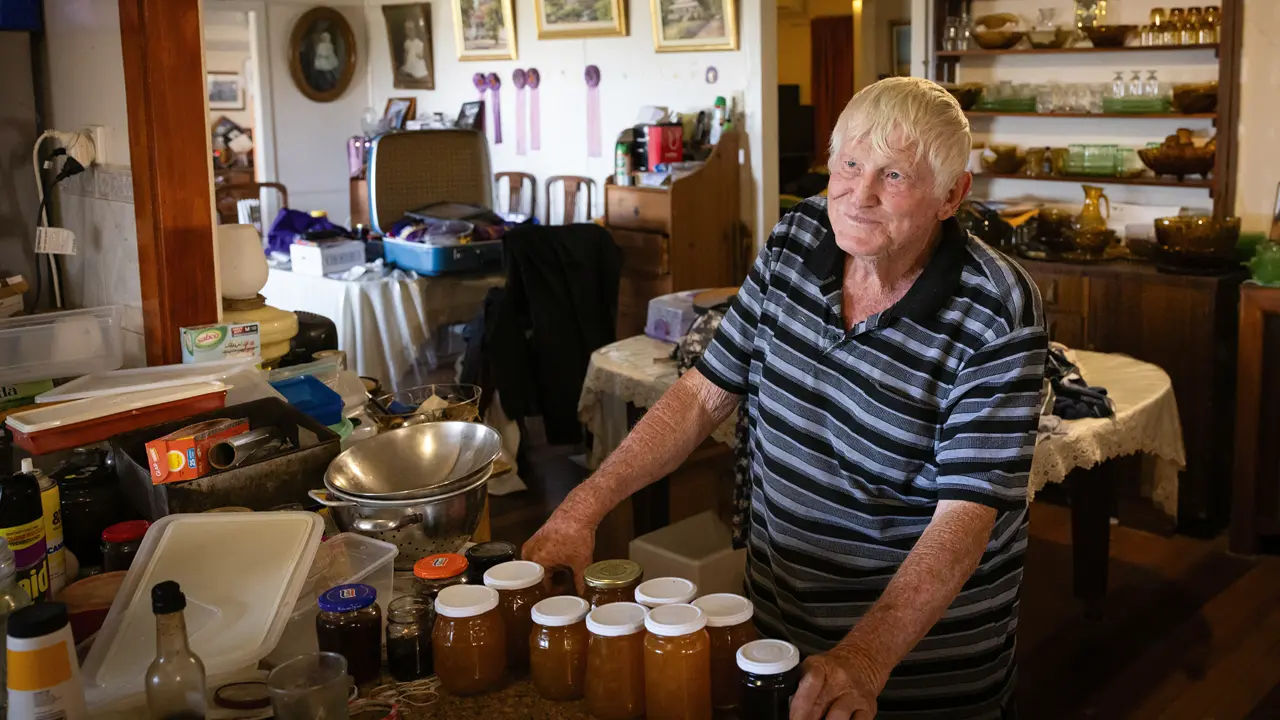Tom Ashby was born to breed Merino sheep, with a family tradition behind him that stretches back four generations and almost 100 years.
Story By Nick Cook
The oven door opens, releasing a waft of steam that carries the delicious aroma of freshly roasted beef. While rain patters rhythmically against the dark windows, making the warm kitchen seem even more homely than it already is, the meat is lifted out, closely watched by a hungry and appreciative family. Chief among them is Tom Ashby, who sips a glass of red wine and chats amicably with the others in the room as the meal takes shape. He looks as comfortable in this setting as it’s possible for a man to be, which is easy to understand – this is not just his home but his lifelong workplace, the house he was born into and, more than likely, will be carried out of.
Tom has spent the majority of his life on “Bundaleer”, near Gulnare, South Australia, breeding Merinos in much the same way as the three generations of Ashbys who preceded him. And, like two of those predecessors, he was recently elected president of the Australian Association of Stud Merino Breeders.
Earlier that day, he outlines the objectives of his presidency during a long drive to point out the boundaries of the 4000 hectares he owns in partnership with his family. The day is overcast and wet, with dark clouds hanging so low they envelop the tops of nearby wind towers, yet he drives along the muddy roads with the casual ease of someone who has spent a lifetime traversing them. Every vehicle that passes gets a wave, not just out of politeness but because he knows the occupants of each or, in the case of his brother’s brother-in-law, is distantly related to them. Foremost among Tom’s goals as president is to get more young people involved in Merino breeding and, specifically, in the organisations that represent it. “The Merino industry has been a bit slow in promoting young people and getting them onto a committee early,” he says. “It’s seen from the outside as something that’s run by old people and I want to change all that.”
Before taking the reins of the national association Tom had done more than his share to encourage the introduction of fresh blood. For instance, he was among the founders of the South Australian Young Merino Breeders Association in the 1980s, becoming its first president, and he was instrumental in the creation of the Breeding Leadership course, which sees young Merino breeders from around the nation come together to learn the management and communication skills that will help them step forward into a larger role within the industry.
Tom’s own career has been the perfect example of the leadership progression he talks about, taking him from Young Merino Breeders to the main South Australian association committee – where he served as president – before he became head of the national body. His motives for getting involved sit halfway between altruism and self-promotion. “Someone’s got to stand up and be a voice for the industry but it also gives you a good profile … [which is] very important when you’re a breeder,” he says. However, it’s obvious that he doesn’t pursue power for its own sake. Most presidents of the Australian association have served three-year terms but Tom’s made it clear that he will only stay in office for two, because of his desire to see more young people reach the upper echelons. “If you only have a new president every three years, you only get three presidents a decade,” he says. “I believe we’ve missed a lot of good people along the way and there’s less turnover of good ideas as a result.”
It’s easy to see why Tom has found so much success on the various committees he’s been part of. Merino association executive director Carol King has seen him work at close quarters for several years and gives him a strong endorsement. “He’s a little on the quiet side but he’s certainly somebody who listens and then acts on what he hears,” she says. “He’s very easy to work with, very fair.”
Tom would be an easy man to negotiate with, as he tends to occupy the middle ground and doesn’t stake out unequivocal positions. Even on the controversial subject of mulesing, arguably the greatest crisis currently facing the Merino industry, his views are moderate. Activist group People for the Ethical Treatment of Animals (PETA) is leading a loud public campaign against the practice, with much success. Many breeders view the onslaught as an attack on their livelihoods, but it does nothing to raise Tom’s ire. Given the chance to defend the industry and strike back at PETA, he sidesteps. “I don’t really want to go head to head with somebody like PETA, I just think that’s a waste of time,” he says.
This story excerpt is from Issue #66
Outback Magazine: Aug/Sept 2009








